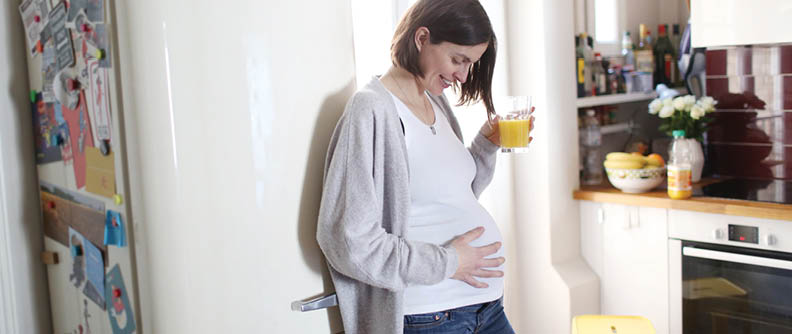You should feel your baby move several times each day at different hours. Your baby’s movement may feel like little kicks or big rolls. Every baby has their own style and the movement also usually changes as your baby grows.
Your clinician will want you to count your baby’s movements at least once a day starting around 28 weeks of pregnancy. At about the same time every day, count how long it takes to feel 10 movements. Most babies will have at least 10 movements within an hour.
You might find it helpful to write it down or use an app. Your clinician will want to hear about your baby’s movement at each visit to make sure everything’s going well with your pregnancy.
Tips for counting kicks
Pick the time of day that your baby is most active. If you’re not sure, try starting after dinnertime. Go to the bathroom and empty your bladder, and then relax in a comfortable position or lie down on your side. Count all movements except hiccups — each kick, twist, or turn is counted as one separate “kick.”
Once you count 10 movements, it’s okay to stop. Write down how long it took for your baby to move 10 times. You’ll find that your baby usually makes those 10 movements in about the same amount of time each day.
But, remember that babies can sleep for up to 45 minutes at a time. If your baby doesn’t move for a full hour after starting your kick count, try these steps:
- Concentrate on feeling your baby’s movement
- Eat or drink something
- Lay onLay on your left side
- Take a short, five-minute walk, and then starting the kick count again
When to contact your care team
If your baby hasn’t moved ten times in two hours or you notice a sudden decrease in normal activity, call your care team for advice. Little to no movement could mean that there’s a problem, so it’s best to get checked out. Even if you have a home fetal doppler and can hear your baby’s heartbeat, you should contact us if you feel a decrease in your baby’s movement.
